2025 Plenary Sessions
Join colleagues from around the world for the Discovery on Target Plenary Keynote Programs. Our plenary keynote presentations will bridge both halves of the event. It's the only time our entire DOT community of drug discovery professionals assembles together to learn about big-picture perspectives, innovative technologies, and thought-provoking trends from luminaries in the field.
WEDNESDAY, SEPTEMBER 24
11:05 am GLP-1 Unveiled: Key Takeaways for Next-Generation Drug Discovery
 Lotte Bjerre Knudsen, PhD, Chief Scientific Advisor, Head of IDEA (Innovation & Data Experimentation Advancement), Novo Nordisk AS
Lotte Bjerre Knudsen, PhD, Chief Scientific Advisor, Head of IDEA (Innovation & Data Experimentation Advancement), Novo Nordisk AS
This talk will explore the evolution of GLP-1 as a significant component in diabetes and obesity treatment, as well as its direct impact on multiple co-morbidities. It will highlight the role of industry innovation and scientific persistence in overcoming challenges posed by its short half-life, ultimately leading to the successful development of GLP-1 therapies. Key lessons from this journey will inform future drug discovery strategies, emphasizing that today's drug discovery must be based on human data.
Lotte Bjerre Knudsen is a Danish national, born in 1964 in a small town near Copenhagen. She holds a degree in biotechnology from the Technical University of Denmark, and a Doctoral degree in Scientific Medicine from the University of Copenhagen, Denmark. Lotte has been with Novo Nordisk since her university graduation in 1989 and has since then held several positions within the company and is today Chief Scientific Advisor in Research & Early Development and heads up IDEA (Innovation and Data Experimentation Advancement). She has deep experience across the entire value chain of drug discovery and development and has published extensively. Lotte is an inventor on many patents, all fully owned by Novo Nordisk. She has been part of representing Novo Nordisk in five FDA Advisory committees. Lotte has received numerous awards. Most recently, she was the recipient the Paul Langerhans Award from the German Diabetes Association and a co-recipient of the American Association for the Advancement of Science Mani Bhaumik Breakthrough of the Year Award, the Lasker Foundation Lasker-DeBakey Clinical Award and the Breakthrough Prize in Life Sciences.
11:40 am Medicines, Integrins, and Organoids
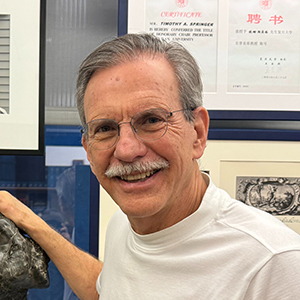 Timothy A. Springer, PhD, Professor, Biological Chemistry and Molecular Pharmacology, Harvard Medical School; Senior Investigator, Boston Children's Hospital; Founder, Institute for Protein Innovation
Timothy A. Springer, PhD, Professor, Biological Chemistry and Molecular Pharmacology, Harvard Medical School; Senior Investigator, Boston Children's Hospital; Founder, Institute for Protein Innovation
Integrins are therapeutically important cell surface adhesion molecules that localize cells within tissues and provide many signals. Despite their essential role in stimulating growth of stem cells into organoids, the potential of integrins to regulate formation of more tissue-like organoids is unexplored. I will discuss the effects of integrin agonists and antagonists on organoid formation with a long-term goal of guiding development of vascularized, mixed-lineage organoids.
Timothy A. Springer, Ph.D. is the Latham Family Professor at Harvard Medical School in the Departments of Pediatrics and of Biological Chemistry and Molecular Pharmacology, and a faculty member in the Program in Cellular and Molecular Medicine and Division of Hematology at Boston Children’s Hospital (BCH). A biochemist, immunologist, and biophysicist, Springer is renowned for his foundational work on protein allostery, cell adhesion, vasculature, and immune regulation. His discoveries have illuminated how force and conformational change modulate receptor-ligand interactions, with broad relevance for inflammation, cancer, and autoimmunity. He discovered, characterized many immune system adhesion receptors, including the first subfamily of integrins and intercellular adhesion molecules, and defined the three-step leukocyte diapedesis model. He advanced biophysical approaches to understand how tensile force and receptor conformational dynamics impact activation mechanisms of integrins and TGF-β.
Timothy was elected to the National Academy of Sciences, National Academy of Medicine, and American Academy of Arts and Sciences and has numerous honors. He founded and/or was an early investor in LeukoSite, Moderna, Editas Medicine, Scholar Rock, Morphic Therapeutic, Tectonic Therapeutic, and Seismic Therapeutic. His research and entrepreneurial efforts have contributed to six FDA-approved therapies. Timothy was elected to the National Academy of Sciences, National Academy of Medicine, and American Academy of Arts and Sciences and has numerous honors. A philanthropist and scientific institution builder, Springer founded the Institute for Protein Innovation (IPI), a nonprofit advancing open antibody science. He also endowed Professorships and Chairs at Harvard Medical School, UC Berkeley, and BCH and serves on the boards of IPI and the Marine Biological Laboratory. His current scientific interests include synthetic, integrin-specific hydrogels to zonulate organoid cultures and enhance tissue fidelity in regenerative medicine and drug discovery.
4:15 pm PANEL DISCUSSION: Venture Capitalist Insights into Trends in Drug Discovery
 PANEL MODERATOR: Daniel A. Erlanson, PhD, Chief Innovation Officer, Frontier Medicines Corporation
PANEL MODERATOR: Daniel A. Erlanson, PhD, Chief Innovation Officer, Frontier Medicines Corporation
PANELISTS:
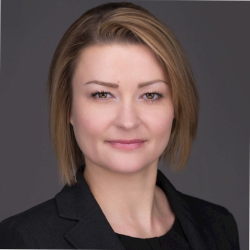 Olga Danilchanka, PhD, Principal, MRL Ventures Fund
Olga Danilchanka, PhD, Principal, MRL Ventures Fund
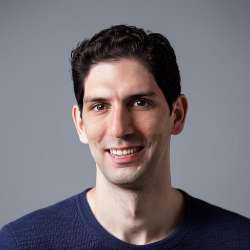 Jamie Kasuboski, PhD, Partner, Luma Group
Jamie Kasuboski, PhD, Partner, Luma Group
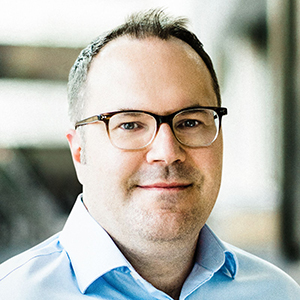 Chris De Savi, PhD, CSO Partner, Curie Bio
Chris De Savi, PhD, CSO Partner, Curie Bio
David Kolesky, PhD, Principal, MPM Capital LLC
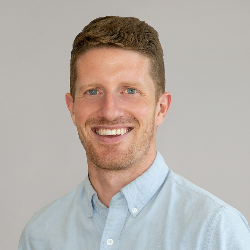 Brendan Kelly, PhD, Principal, Lightstone Ventures
Brendan Kelly, PhD, Principal, Lightstone Ventures
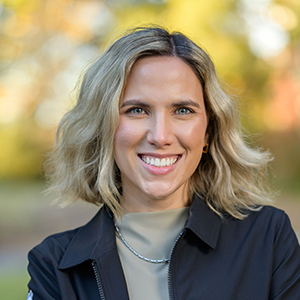 Blair Willette, PhD, Associate, KdT Ventures
Blair Willette, PhD, Associate, KdT Ventures
Topics to be discussed:
- Key drivers of innovation in drug discovery
- Overcoming hurdles in translating discoveries from the lab to the clinic
- Impact of AI/machine learning, emerging drug modalities, pursuit of challenging drug targets
- Navigating the current regulatory and funding environment
- Perspectives on upcoming challenges and opportunities in drug development
5:15 pm Connecting the DOTs to Spark Change!
Join us for an hour of inspiring, informal discussions on how to forge connections and create impactful ecosystems that will help you think, act, and thrive. We have invited pharma, biotech, and academic leaders to share their stories and experiences and to discuss key learnings. There will be time for open discussion and networking. This session will not be recorded for on-demand viewing.
Topics for discussion will include, but certainly not be limited to:
 How to Create Opportunities for Scientists to Connect and Collaborate
How to Create Opportunities for Scientists to Connect and Collaborate
Saudat Fadeyi, PhD, MBA, Head, Business Development & Strategy, Samyang Biopharm USA, Inc.
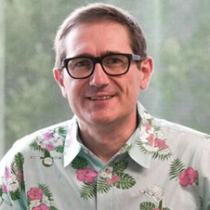 How to Educate Scientists to Seek Out Networks and Funding Resources
How to Educate Scientists to Seek Out Networks and Funding Resources
Sean Ekins, PhD, Founder & CEO, Collaborations Pharmaceuticals
 How to Motivate Industry and Academia to Work Together and Forge Partnerships
How to Motivate Industry and Academia to Work Together and Forge Partnerships
Shruthi Bharadwaj, PhD, Program Leader, MIT
 How to Address Hidden Barriers and Biases
How to Address Hidden Barriers and Biases
Raquel Mura, DPharm, Founder, RGM Life Sciences Consulting; former VP & Head R&D, Sanofi
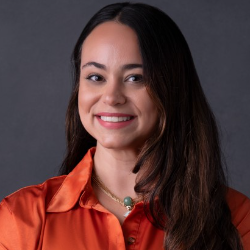 How to Uncover Gaps and Systemic Predispositions, Rethinking Clinical Trial Design Conventions
How to Uncover Gaps and Systemic Predispositions, Rethinking Clinical Trial Design Conventions
Nisha Perez, PhD, VP Preclinical Development & Clinical Pharmacology, ROME Therapeutics